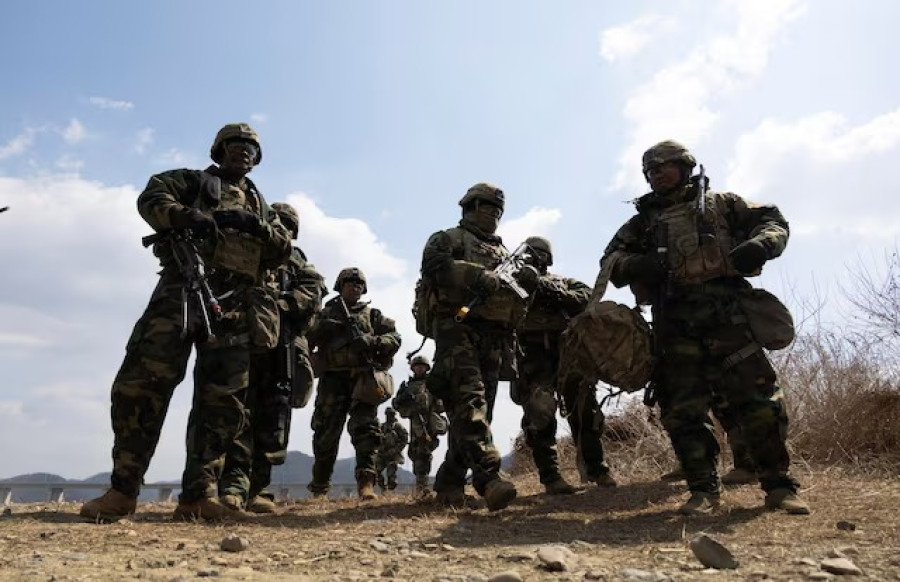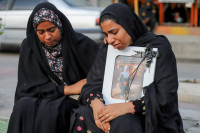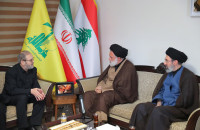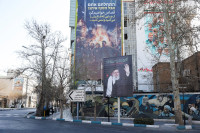World
South Korean military to boost unmanned capabilities by training 500,000 ‘drone warriors’
The move underscores the growing role of unmanned systems in modern warfare and the country’s drive to foster a domestic drone industry.
The Korea Herald
South Korea’s Defense Ministry on Thursday announced an ambitious initiative to cultivate half a million troops proficient in drone operations, underscoring the growing role of unmanned systems in modern warfare and the country’s drive to foster a domestic drone industry.
Defense Minister Ahn Gyu-back unveiled the plan at the Republic of Korea Army’s 36th Infantry Division base in Wonju, Gangwon Province, designating the unit as the military’s first dedicated training ground for drone operations.
The initiative to foster “500,000 drone warriors” is built around two pillars: giving every soldier the chance to earn drone piloting credentials and practical experience, and forging closer ties between the armed forces and the domestic drone industry. The program is designed not only to strengthen battlefield capabilities by embedding drone operating skills across ranks, but also to provide veterans and those discharged from the military with a skillset in the area.
To support the effort, the Defense Ministry has set aside roughly 20.5 billion won ($15 million) of the planned 66.3 trillion won budget for 2026. The funds will go toward procuring thousands of small, commercially available training drones built with locally manufactured components such as motors and batteries, as well as expanding the infrastructure and professional instruction programs needed for large-scale training.
Pilot programs are scheduled to begin later this year across each branch of the armed forces, laying the groundwork for what officials hope will become a nationwide model.
Ahn said the Army’s 36th Division would serve as a model for other units, noting that its experience in strengthening drone operations through “creative and diverse efforts” will be shared more widely across the force. He called for the division to act as a central test bed, allowing the military to rapidly evaluate new technologies, including drones and related military equipment enhanced with artificial intelligence.
The Defense Ministry said it is also considering designating additional specialized units across the services to test small and counter-drone technologies now being developed in the private sector, and later tailor the trials to different mission types.
Ahn drew a parallel between the latest initiative and the late President Kim Dae-jung’s push in the late ’90s to provide information-technology training to soldiers.
“(Former President Kim’s initiative) helped turn a generation of young South Koreans into world-class digital talents and cemented the country’s status as an IT powerhouse. The drone initiative could play a similar role today — serving not only as a military reform but also as a catalyst for personal development, industrial growth and a new source of national strength,” he explained.
The Defense Ministry’s plan reflects a global trend of the rapid militarization of unmanned vehicles, which has been reshaping modern warfare. Unmanned systems, once considered supplementary, have become decisive tools for surveillance, precision strikes, and asymmetric tactics. In conflicts from Ukraine to the Middle East, drones have altered the balance of power by lowering costs while raising lethality.
North Korea is moving in the same direction.
Pyongyang has been accelerating its drone program, unveiling advanced unmanned systems, expanding test facilities and even exporting drones abroad, according to recent intelligence assessments and satellite imagery.
The push is part of North Korean leader Kim Jong-un’s pledge to prioritize unmanned and artificial intelligence capabilities as a cornerstone of military modernization. In March, the North’s state media showcased AI-powered exploding drones — designed to strike targets directly — alongside large reconnaissance unmanned aerial vehicles and even a converted early-warning aircraft.
In association with Asia News Network.




 10.95°C Kathmandu
10.95°C Kathmandu















